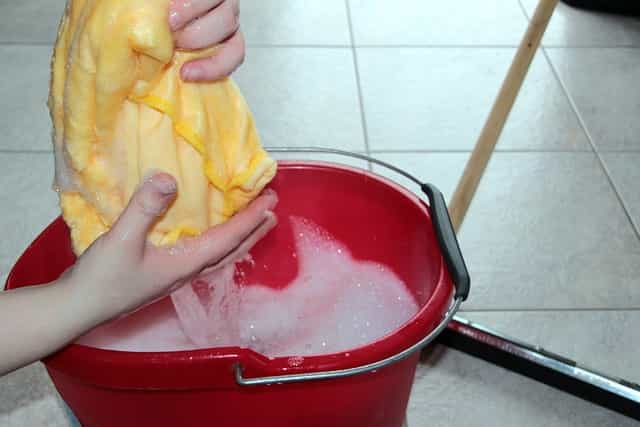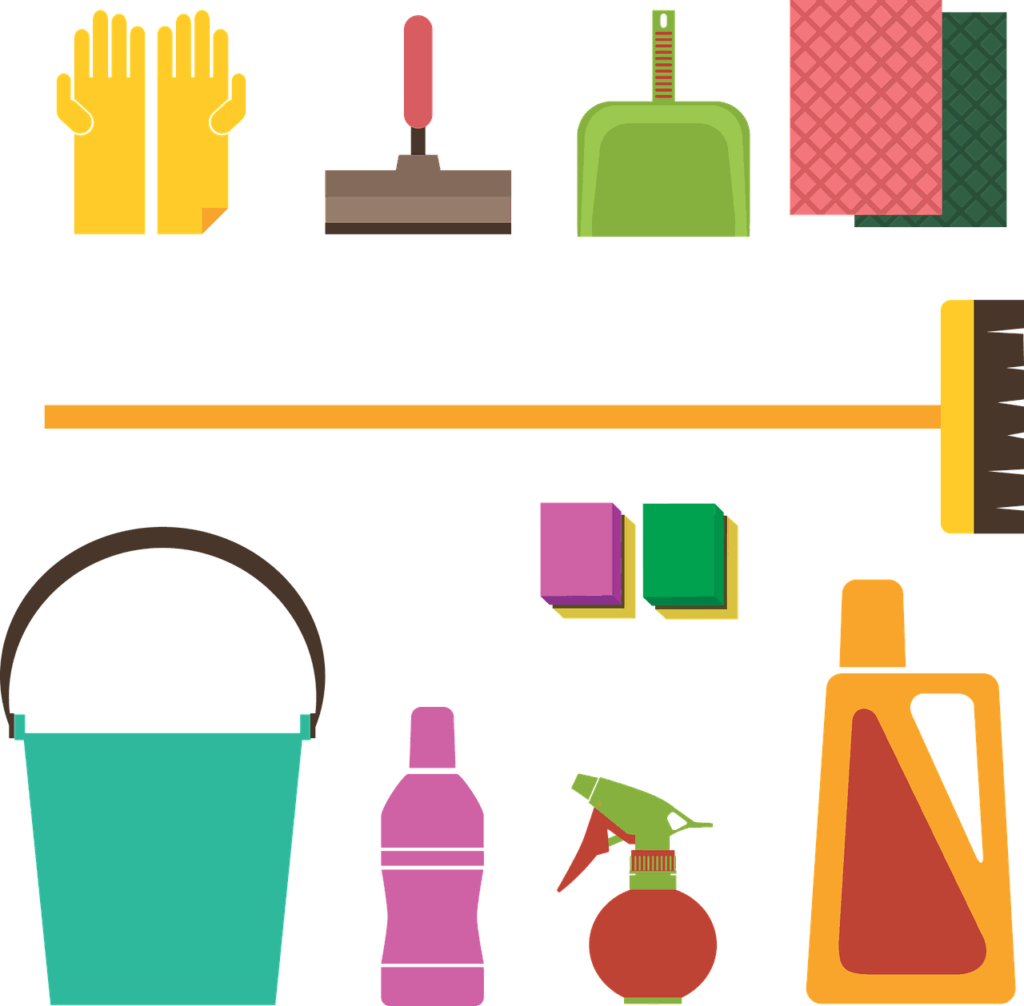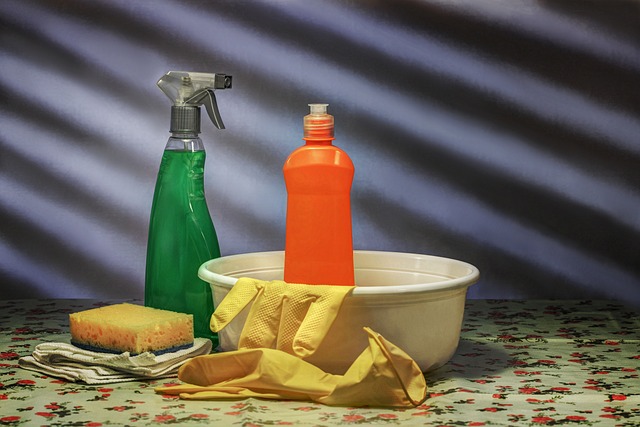
Home renovations bring excitement, newness, and it’s clean/out a fresh look to your living space, but the work behind leaves your living space with it’s own general mess and dust and debris. After a renovation, cleaning your house, especially tiles, is a necessary step to fully take advantage of your project.
In this detailed guide, we present a detailed step-by-step walkthrough on how to clean up after (and before) you renovate with a special emphasis on cleaning tiles specifically.
Cleaning Your House Including Tiles and Vinyl floors
1. Safety First:
Wear Protective Gear: Make sure you are safe first with gloves, a dust mask, and safety glasses, before you begin to clean. It protects you from potential allergens and irritants.
2. Dust Removal:
Start from the Top: Dust high surfaces first and work your way down. It is designed so as to prevent dust from settling on cleaned areas.
Use Microfiber Cloths: The dirt tends to get trapped by microfiber cloths. Pour a bit of water on the cloth so we can take in more dust.
3. Floor Cleaning (Including Tiles and Vinyl Floors):
Sweep and Vacuum: The first thing you should do is wipe or vacuum the floors like your tiles to eliminate loose debris.
Mop with a Suitable Cleaner for Tiles: A tile friendly floor cleaner, or mild detergent and water combined is used. Instead of harsh chemicals, avoid chemicals that may damage the tiles.
4. Grout Cleaning:
Sweep or Vacuum Grout Lines: Using a small brush, vacuum or broom remove any loose debris from the grout lines.
Use a Grout Cleaner: Either apply a grout cleaner or a simple baking soda and water mixture. Remove with a grout brush.
5. Tile Surface Cleaning:
Damp Mop Tiles: After you’ve done the initial debris removal, damp mop the tiles with a well wrung mop. Make sure you are using a good cleaner for your tile type.
Spot Clean Stains: Rub stubborn stains on the tiles with a tile-specific stain remover or a mild solution.
6. Window and Glass Cleaning:
Clean Window Frames: Damp cloth wipe down window frames and sills.
Use a Glass Cleaner: A streak free glass cleaner will ensure clean windows and glass surfaces to finish crystal clear.
7. Walls and Ceilings:
Dust Walls and Corners: Use a soft broom or duster to make dust walls. Look at the corners and edges.
Spot Clean Stains: It includes removing any stains or marks on the walls with a good cleanser appropriate for your wall paint.
8. Final Touches:
Inspect for Missed Spots: Go through the house and see if there’s anything you’ve missed.
Deodorize: Deodorize the space after that. If you have open windows for natural ventilation, or if you have air purifiers to remove lingering odours, you’ll be fine.
9. Dispose of Waste Properly:
Separate Construction Waste: Conservation of construction waste, according to local regulations. Incorporating specified recyclables from specified nonrecyclables.
What to Use for Cleaning:
In order to clean after a renovation, it is best to use the appropriate tools and products in order to achieve effective, and safe results. Here’s a list of common items you might need:

Microfiber Cloths: Perfect for using as a dusting surface without scratching. They are also very effective trap dust particles.
Broom and Dustpan: To sweep larger debris and dust off of the floor.
Vacuum Cleaner: Perfect for cars, upholstery and other space issues. You should choose a better vacuum with the HEPA filter that captures dust.
Mop: This all depends on your flooring type and choosing a suitable mop. Depending on the surfaces, most mop up well with the microfiber or sponge variety.
Floor Cleaner: Select a floor cleaner that’s best suited for your kind of flooring. In case of vinyl floors, go for a mild detergent solution.
Soft Brush or Bristle Broom: Easy to use; ideal for cleaning grout lines, corners, and edges.
Cleaning Solutions:
- All-Purpose Cleaner: Versatile for all surfaces.
- Glass Cleaner: For glass, windows, and glass surfaces.
- Tile and Grout Cleaner: It was specifically designed for the purpose of cleaning tile surfaces.
- Vinyl Floor Cleaner: Developed to remove and protect vinyl flooring.
- Stain Removers: Have different stain removers for carpets, for upholstery, and for hard surfaces according to the kind of stains.
- Rubber Gloves: Protect your hands from cleaning agents, and potential irritants.
- Trash Bags: Throw away debris, and waste properly.
- Furniture Protectors: Prevent scratches on floors, with felt pads or furniture sliders.
Protective Equipment:
- Safety Glasses: Prevent dust and debris harming them.
- Dust Mask: Keep dust and allergens out of the air.
- Gloves: Make sure agents and possible irritants do not get on your hands.
- Extension Cord: Make sure you can power the vacuum and such electric cleaning tools.
- Step Ladder: Useful for places requiring you to reach higher or higher ground.
- Storage Containers: Store cleaning supplies in such a way that you can pick up the items for future use.

Frequently Asked Questions:
A: It’s good to start by vacuuming or sweeping floors then dusting surfaces with microfiber cloths. To fully clean the rest of the floor use a damp mop with suitable floor cleaner.
A: Choose cleaners based on flooring type, yes. Another example is that you use a mild solution for vinyl floors and specialized items for tiles, hard floors or carpets to help retain this integrity.
A: On delicate surfaces, use a streak-free glass cleaner and a soft micro fiber cloth. Apply the cleaner to the cloth so that it does not spray onto other, nearby, areas.
A: Many types of all purpose cleaners are great for a variety of surfaces, just make sure to select one that is suitable for your individual materials. Label, and test on these inconspicuous areas.
A: The stain type has to be identified, then you have to find the right stain remover for you. First test the remover on a hidden spot, then blot (don’t rub) the stain.
A: Use gloves and safety glasses. Make sure to ventilate correctly and follow the cleaning product label.
A: That said, yes, there are eco friendly and natural cleaning alternatives. Vinegar, baking Soda and lemon are all viable products and are not damaging for the environment.
A: Before returning furniture, clean so dust and debris don’t settle on clean surfaces. Letting it sit ensures that you get that fresh spotless result.
Conclusion:
Cleaning your house after a renovation, and most especially tiles consequently will guarantee a decent and clean living environment and also the outstanding and great looking refurbished features.
After completion of your project you will need to follow these steps as literally meticulously as one will need to do while making the cloths dry to enjoy the spotless home with beautiful tiles.
